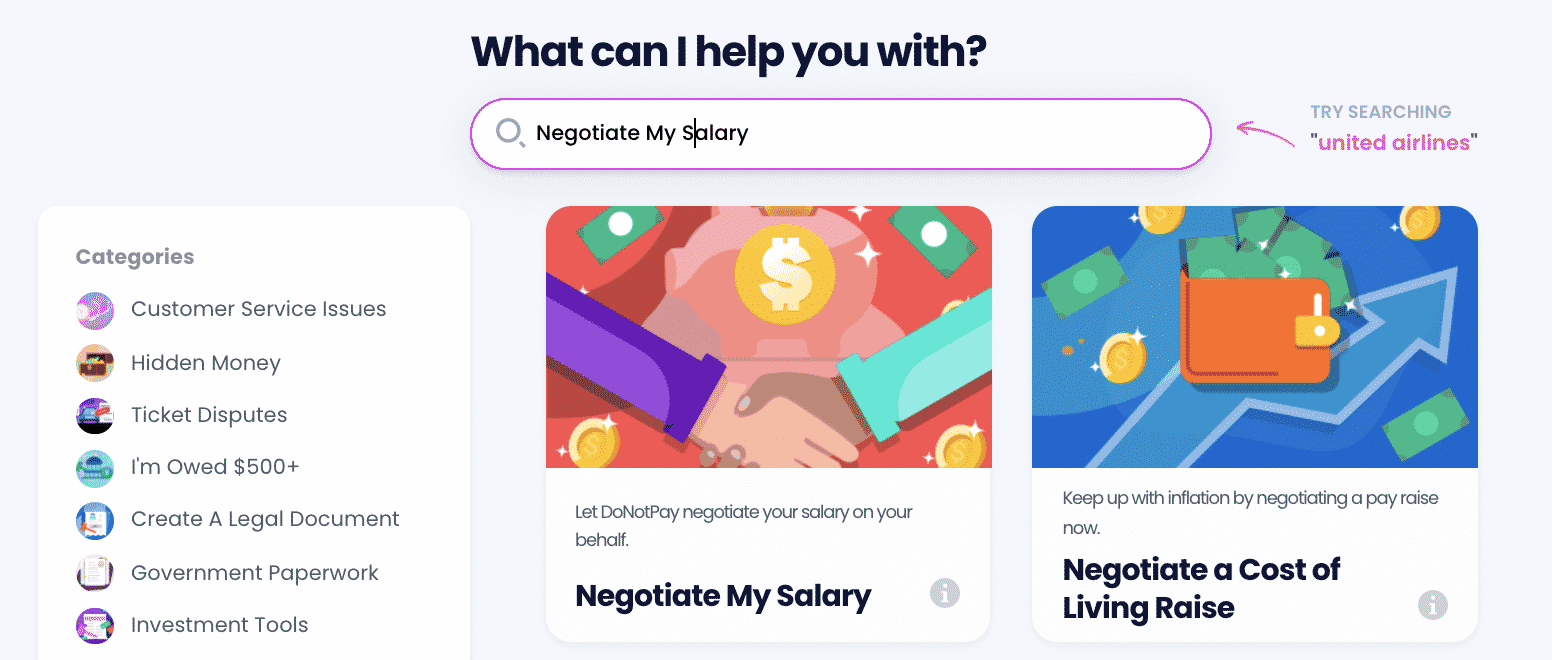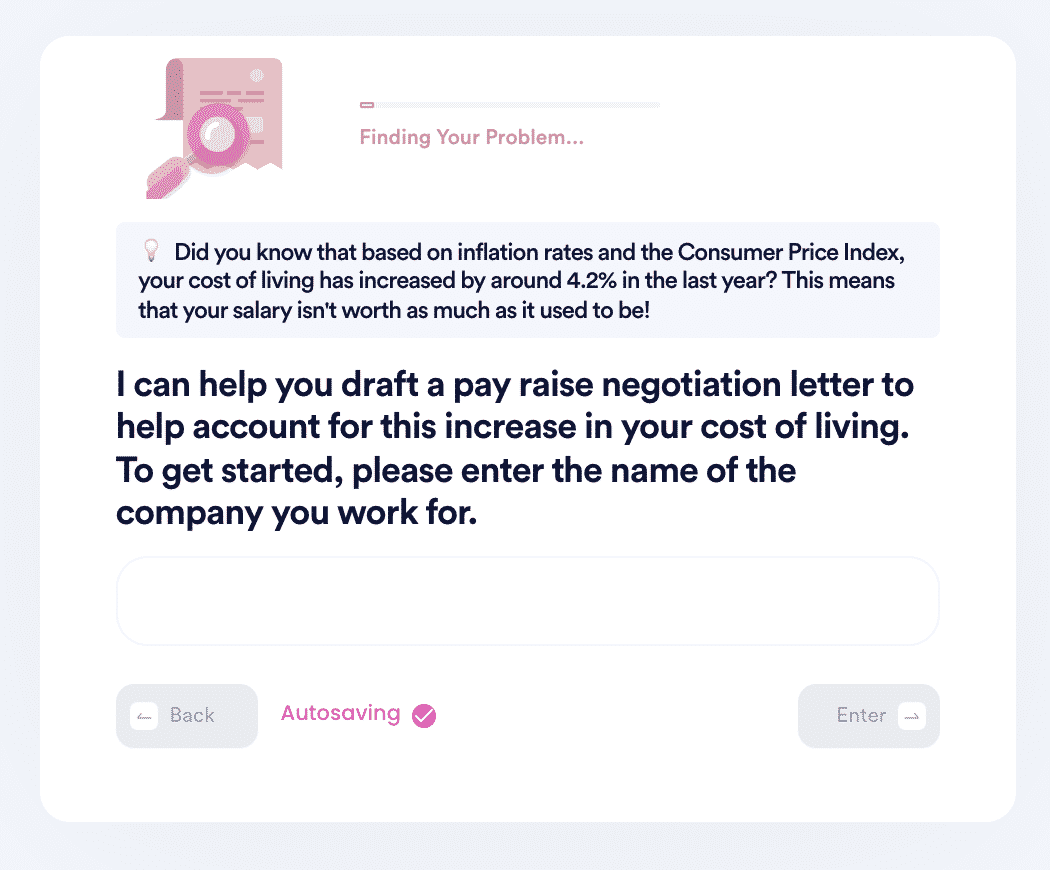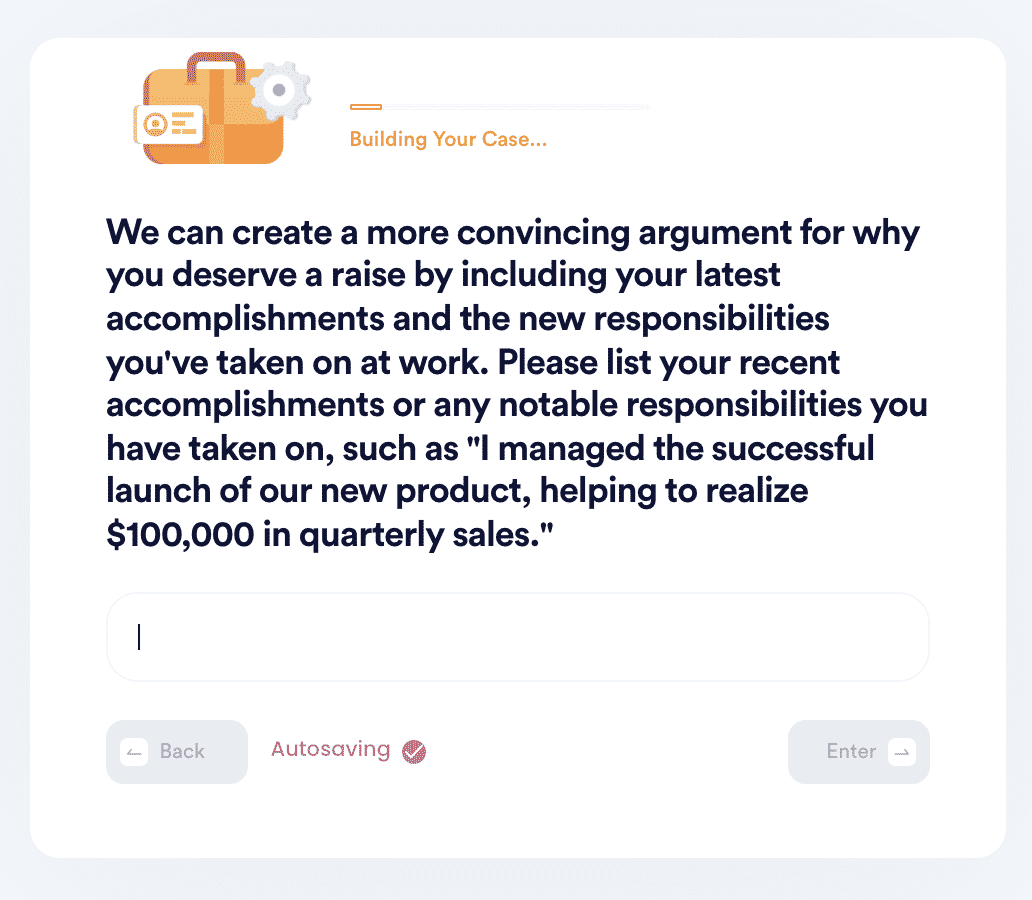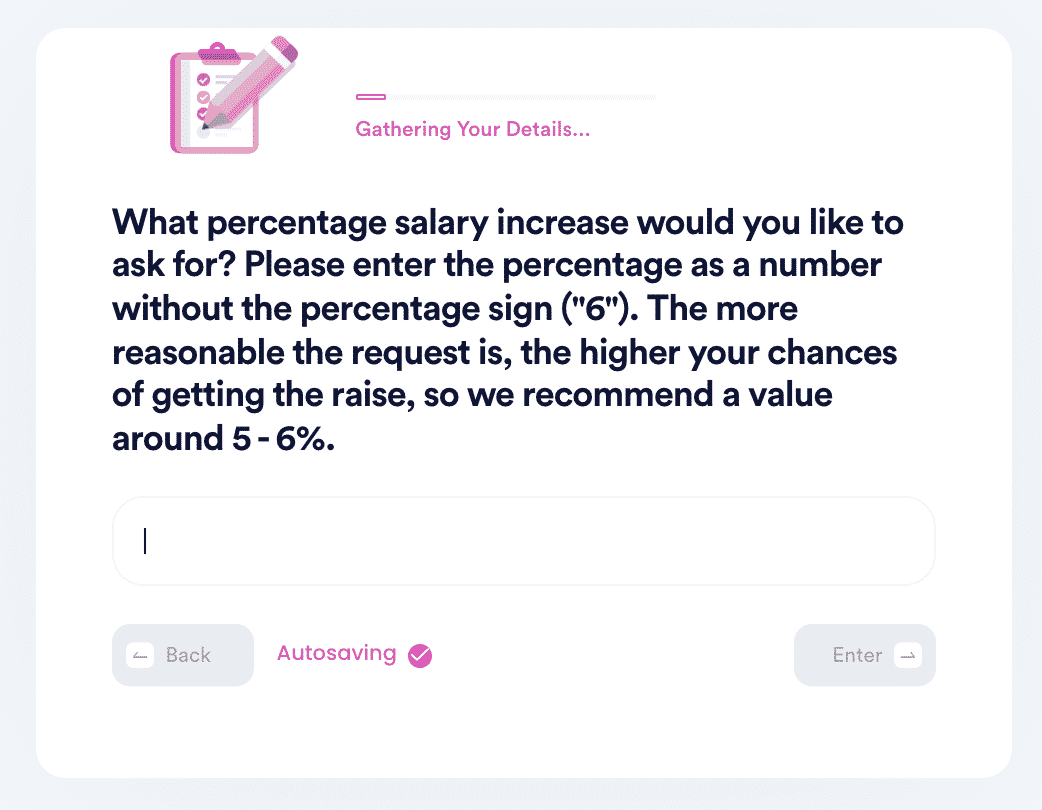How to Write a Letter of Complaint About Pay Increase Easily
If you've recently had a review at work and believe your salary increase doesn't adequately reflect your job performance, you can . If you're unsure how to start the conversation or if this is the first time your boss hears you want more money, DoNotPay can help.
How to Negotiate Your Salary
Having to ask for raise after a pay increase is a tricky spot to be in. On the one hand, it can be challenging to broach the topic with your manager because it's not like your salary has remained stagnant, but on the other hand, if you still feel that your salary isn't up to par, you don't want to resign yourself to being under-compensated for what could be another year or longer.
Therefore, it's crucial to have that conversation with your boss. You'll just need to approach it delicately. Here are a few tips for negotiating a salary increase:
| Start by expressing your gratitude. | When asking for more money after having received a raise, the last thing you want is to come across as unappreciative. As you begin discussing matters with your boss, be sure to start by saying thank you for the raise you did receive, so your manager is less likely to get defensive or annoyed early on. |
| Review your company's performance. | If your company has had a bad year, it may not be giving large pay increases, no matter how good your performance has been. Do some homework about how well your company has performed before complaining about your low pay increase over the past financial year. You won't make yourself very popular among your bosses if you immediately react to a low pay increase by throwing a fit, and you won't look like a team player if your colleagues have graciously accepted their low increase for the common good while you're haggling for more money. |
| Prove that you're worth more. | You need to demonstrate that you actually deserve a bigger raise. To prove your worth as an employee, you need to show tangible results from your work. Creating a presentation that includes case studies and analysis of successful projects you were part of will help support your argument when you ask for a raise. Get your boss' candid feedback and collect testimonials from happy customers, including any internal clients you work with. |
| Compare yourself to industry standards. | The first thing to figure out how to ask for a bigger raise than offered is to figure out what other people in your job role get. Pointing out industry standards and trends can help bolster your case helpful - it's a way to show how your salary doesn't measure up to your value. Even internal data on your colleagues' raises can be helpful, but don't mention rumors about other workers' pay increases if these are unsubstantiated. |
How Often Should You Get a Raise?
Many companies often provide raises on a scheduled basis and review employee performance at regular six or twelve-month intervals, adjusting compensation in conjunction with those appraisals. However, several factors affect salary increases, such as job sector, location, and inflation, but most employers give their employees an average increase of 3% per year.
Reasons to Get a Raise
There are several reasons why you may feel you deserve more than your current salary or the scheduled increase amount.
- You may want to ask for a raise if you were recently promoted to a new position with more responsibility or you're doing more than your current position requires.
- You may deserve a raise if you consistently deliver work that positively impacts the company's success.
- You might want to discuss a pay increase if you achieve a sizable company goal.
- You may especially want to request a bump in pay if you are working longer hours or are overseeing a team.
How to Write a Letter of Complaint About Pay Increase by Yourself
Before you , you need to clearly understand the case you want to present to your manager or HR. The complaint letter should be written clearly and concisely and in a professional but conciliatory tone.
Your letter of complaint about the pay increase should include the following:
- Mention that you enjoy working in your position for the company.
- Industry average wage for your position.
- Additional responsibilities you have taken on.
- Additional training you have acquired for your position.
- Mention your accomplishments.
- Discuss your desired wage and your willingness to negotiate.
How to Negotiate Your Salary Using DoNotPay
Negotiating your salary using DoNotPay is fast, easy, and very convenient. All you have to do is
- Search for 'Negotiate My Salary' on DoNotPay.

- Fill in your company's name and the industry you're in for us to compile wage statistics in your field.

- Write your achievements and qualifications.

- Enter your preferred base salary.

And that's it. Once the information is finalized, DoNotPay will generate an official salary negotiation letter that you can then email or present to your employer.
What Else Can DoNotPay Do?
Apart from helping you negotiate for a salary increase, DoNotPay can also help you in other ways, such as:
- Fighting workplace discrimination
- Getting chargebacks and refunds
- Reducing property taxes
- Canceling any service or subscription
Why struggling to on your own, yet DoNotPay can help you do that at a click of a button? Contact us today to get started.


